Financial literacy Worksheets for Kids
6 filtered results
-
From - To
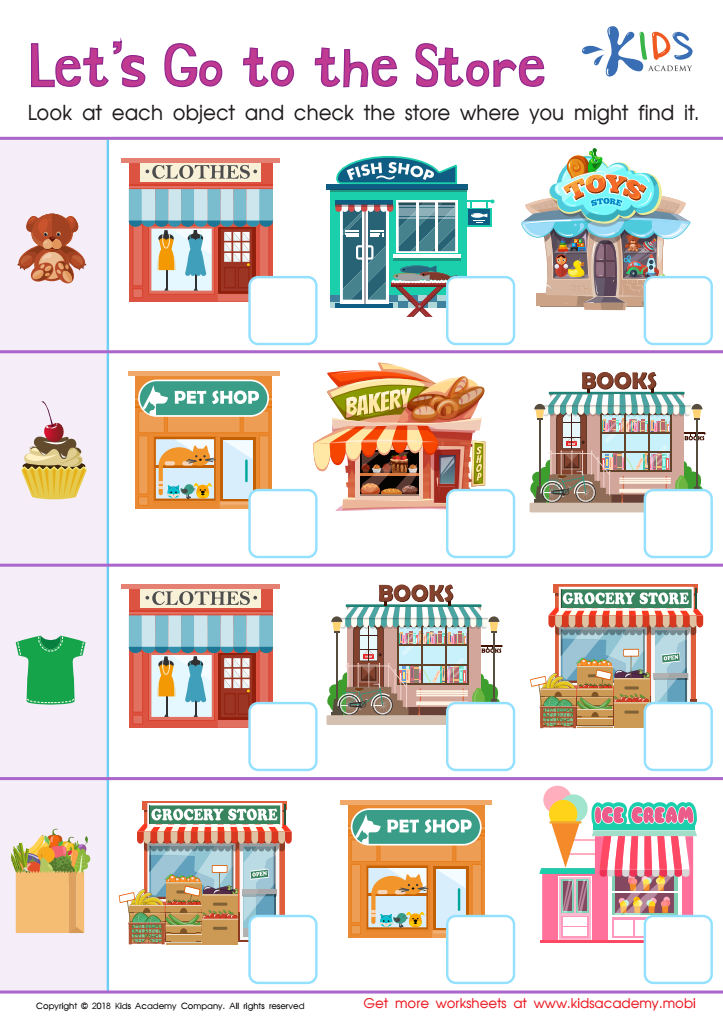

Let's Go to the Store! Worksheet
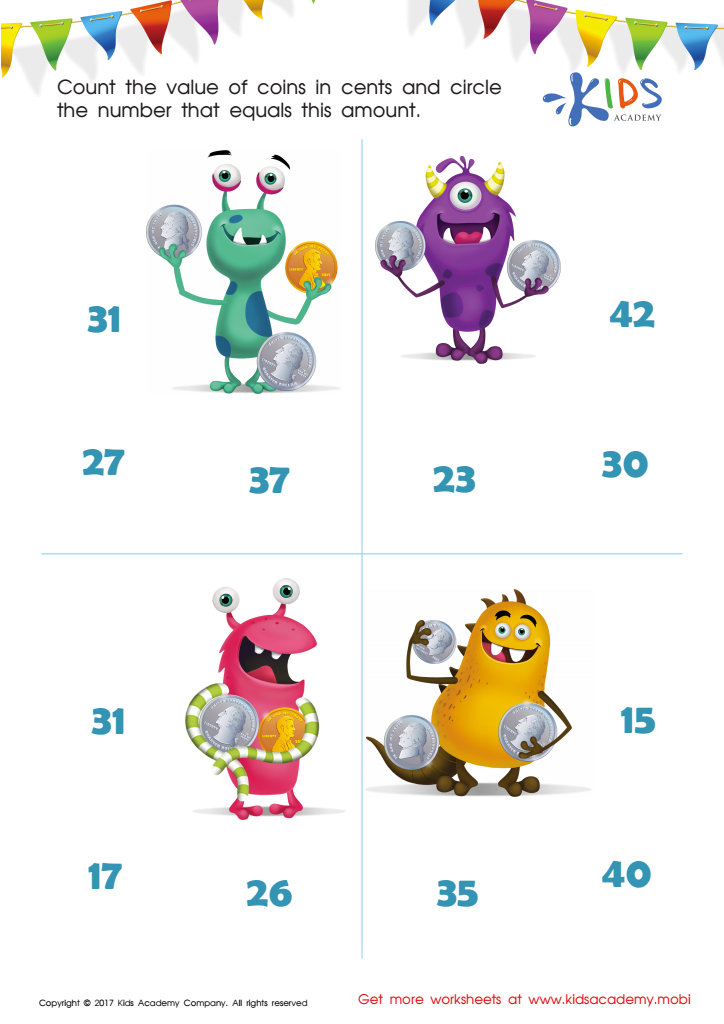

How Many Coins Money Worksheet
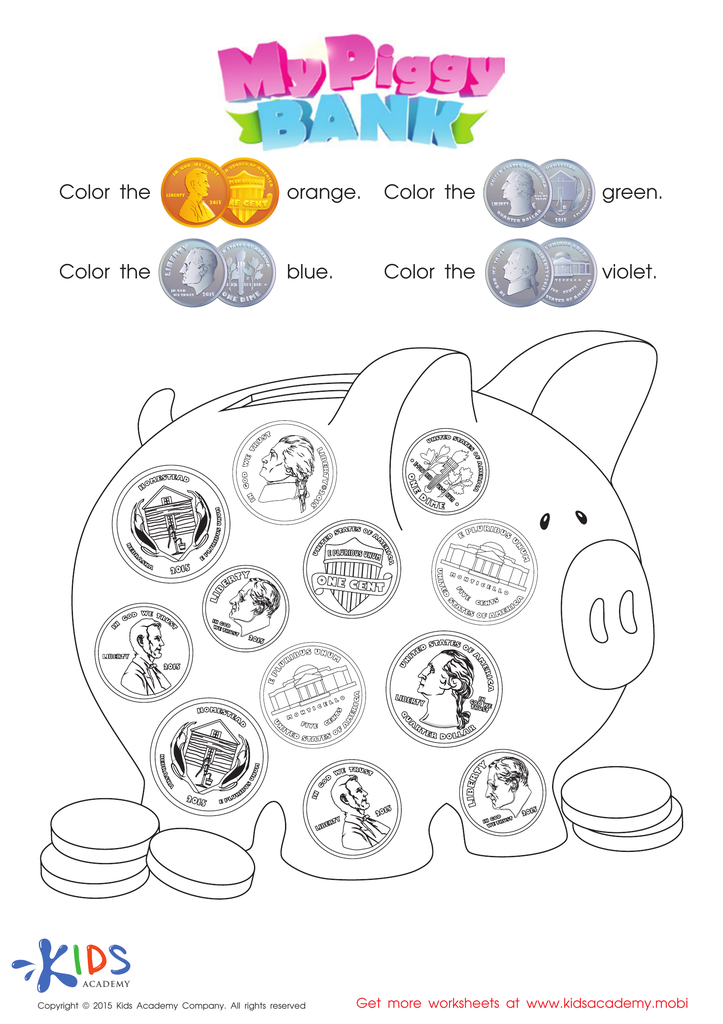

Recognizing Money Money Worksheet
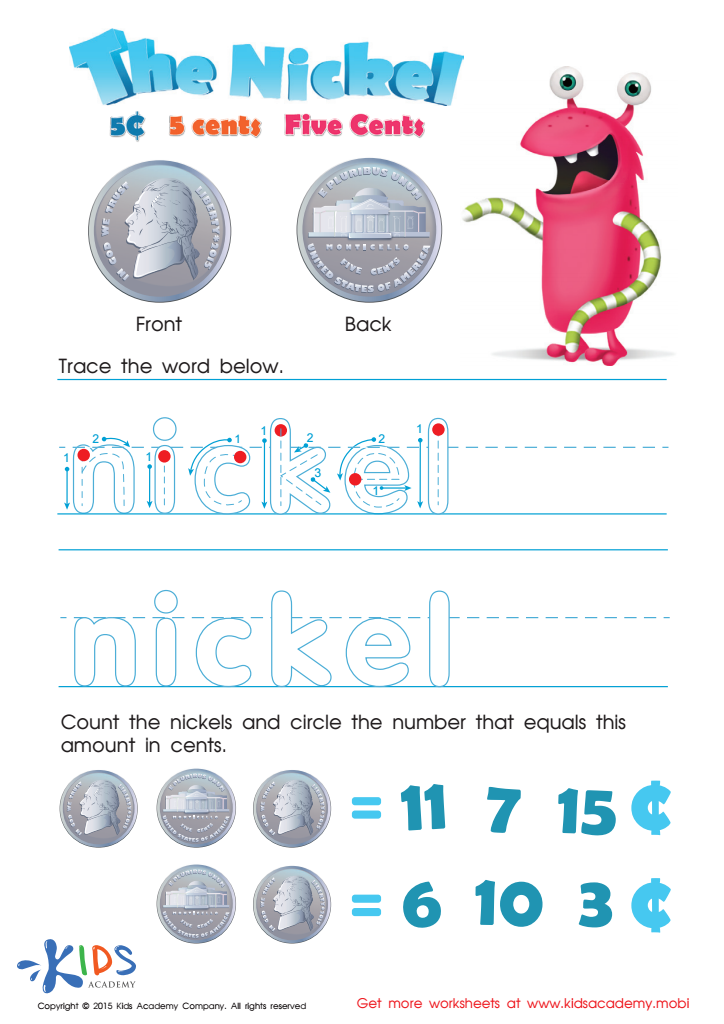

Five Cents or the Nickel Money Worksheet
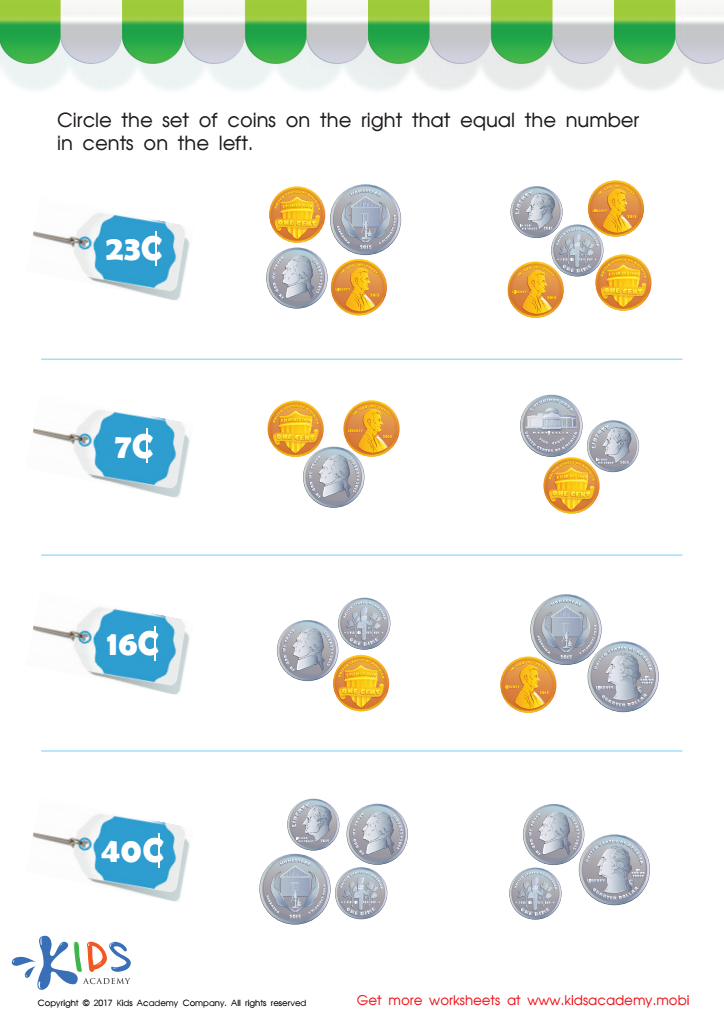

Picking the Coins You Need Money Worksheet
Question/Answer
What does the Financial literacy skill mean when it comes to Grade 2 Money learning?
Financial literacy skill in the context of Grade 2 Money learning involves teaching children the basics of money management, including recognizing and counting money, understanding simple transactions, and grasping the concept of saving versus spending. It lays the foundation for making informed and effective decisions with their financial resources as they grow.
Why is the Financial literacy skill important for Grade 2 students?
Financial literacy is important for Grade 2 students because it lays the foundation for responsible money management skills. At this age, children begin to understand the value of money, making it an ideal time to introduce concepts like saving, spending wisely, and earning. These early lessons help instill healthy financial habits that can benefit them throughout their lives.
What are some effective activities to train students’ Financial literacy skill when teaching them about Money?
Effective activities to train students' financial literacy skills include interactive budgeting exercises, investment simulation games, role-playing buying and selling scenarios, creating and managing a mock stock portfolio, financial goal setting and planning projects, and using online financial literacy platforms or apps. These hands-on experiences help students understand money management, saving, investing, and the importance of financial planning.

 Assign to My Students
Assign to My Students











.jpg)










